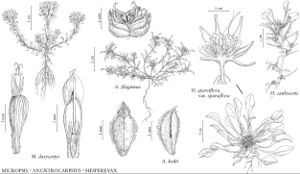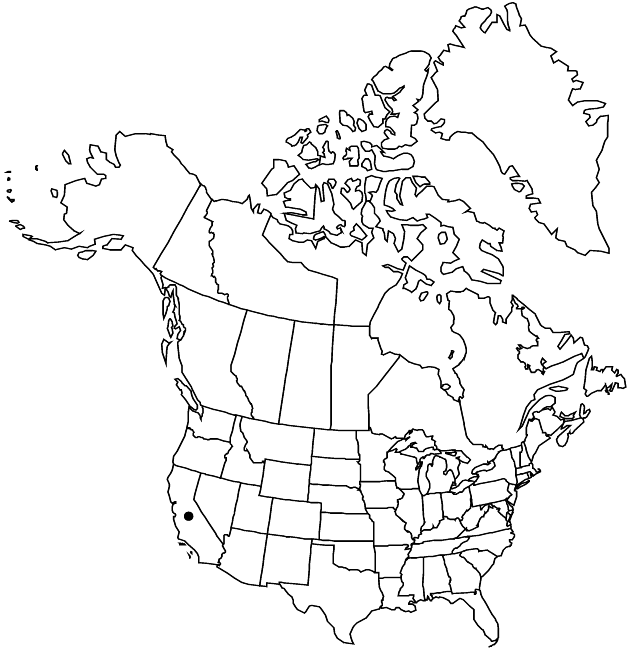Hesperevax sparsiflora var. sparsiflora
Treatment appears in FNA Volume 19. Treatment on page 468.
Revision as of 19:21, 16 December 2019 by FNA>Volume Importer
Plants greenish to grayish, (2–)8–17 cm. Leaves mostly cauline, largest (10–)13–32 × 4–8(–10) mm; blades broadly oblanceolate to obovate, arachnoid-sericeous. Heads: longest 3.6–4.5 mm. Pistillate paleae 3–4.5 mm. Cypselae mostly 1.3–1.7 mm.
Phenology: Flowering and fruiting mostly late Mar–early Jun.
Habitat: Open soils, often shallow and rocky, usually over serpentine
Elevation: 10–900 m
Discussion
Variety sparsiflora is known from the Coast Ranges and has outliers in western San Diego County and on the nearer Channel Islands. In the southern half of its range, it grows mostly in coastal marine environments, where it remains distinct from the north-coastal var. brevifolia. Consistently stemless plants from Santa Rosa Island may warrant taxonomic separation.
Selected References
None.
Lower Taxa
None.

